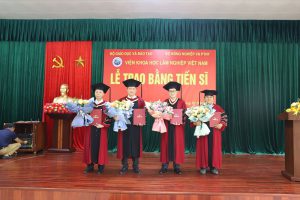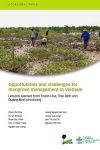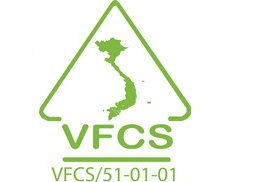Ha Huy Thinh, Doan Ngoc Dao, Do Huu Son
Research Centre for Forest Tree Improvement
Pine resin is valuable non-timber forest product either for export and domestic uses. The resin is indispensable raw material for many industries. In the period 1990-2000, the Research Centre for Forest Tree Improvement had successfully selected and tested nearly 200 elite trees of Pinus merkusii having very high resin productivity. The objective of this research project was to establish pilot plantation of P. merkusii having high resin productivity by using seed or graft collected from best selected mother trees. In the period 2001-2005, the project successfully implemented and some of the main results can be highlighted:
– The project had successfully collected 120 individual family seedlots from selected mother trees either in plantations in Nghe An, Ha Tinh, Thanh Hoa and Dai Lai and seed orchards in Ba Vi
– Direct evaluation of resin productivity was implemented both Xuan Khanh and Cam Quy seed orchards. In each seed orchard, we had selected 20 clones having very high resin productivity.
– 2 ha clonal seed orchards was established using 20 best resin production clones selected from Xuan Khanh seed orchard.
– 6 ha pilot plantations were established using seed from 60 best selected mother trees. These plantations are of good growth and high survival percentage.
Latest news
- Project: Commercial-scale yield trial and completion of planting techniques for newly recognized acacia hybrid cultivars (BV586, BV376, BB055, BV584, BV523, BV434, BV350)
- Project: Research on selection and breeding of Acacia hybrid and Acacia auriculiformis for timber plantation in main ecological regions
- National seed orchard of Pinus merkusii
- National seed orchard of Acacia auriculiformis
- National seed orchard of Acacia mangium
Oldest news
- Breeding a number of native Bamboo specties in Northwestern Vietnam
- Results on genetic testing and vegetative propagation of Macadamia in Vietnam
- Research on the development of Ligustrum lucidum ait for urban greening
- Propagating garcinia cowa Roxb by grafting
- Vegetative propagation and establishment of pilot plantation of Acacia auriculiformis using newly selected clones






